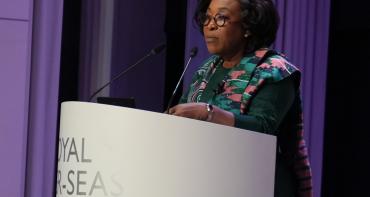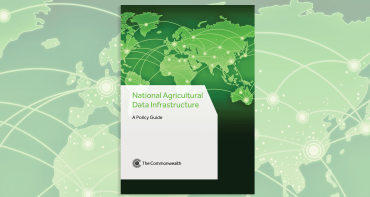Secretary General Patricia Scotland has shared her vision to ensure that the Commonwealth remains relevant and vigorous during 'troubled and troubling times'.

Secretary General Patricia Scotland has shared her vision to ensure that the Commonwealth remains relevant and vigorous during 'troubled and troubling times'.
She was speaking at the Bangladesh Institute of International and Strategic Studies (BIISS) seminar during her first official trip to the country.
Joining the Secretary-General, on the theme of ‘Commonwealth Advantage - progress and potential’ , were Foreign Minister Abul Hassan Mahmood Ali and Foreign Affairs Minister Shahriar Alam.
Secretary-General Scotland gave delegates insights into last April's Commonwealth Heads of Government Meeting (CHOGM) where 53-member states agreed a swathe of initiatives to build on the progress being made since she took over the organisation more than two years ago.
"A distinctive feature of CHOGM, as of all Commonwealth ministerial meetings, whether for finance ministers, foreign ministers, health and education ministers, ministers of trade, for youth, for sport, or for women, is the ready access afforded to those on whose behalf they work," she said.
"There is a special feeling of family in the closeness and symbiotic nature of the relationship ministers and their supporting officials enjoy with Commonwealth networks of practitioners and professionals active in their spheres of responsibility. The organic and human characteristics of Commonwealth growth and development bring immensely valuable goodwill and trust to our relationships and the way in which we do business.
"That we are family, not foreign, is recognised by the fact that our member nations are represented to one another by high commissioners, not by ambassadors."
There were no winners or losers at CHOGM, said the Secretary-General, because decisions were made by consensus and not by vote. The Commonwealth is helping to share prosperity among the 53-member states. The 2018 Commonwealth Trade Review showed that even though the Commonwealth was not constituted as a formal trading bloc, trade and investment remained strong. That was because it was 19 per cent cheaper when Commonwealth countries traded with one another, when measured against comparable country pairs.
"This rising tide of intra-Commonwealth trade underlines the growing significance of Commonwealth markets for many of our member countries," said Secretary-General Scotland. "Our research finds that there are enormous untapped opportunities to boost intra-Commonwealth trade in goods, services and the digital economy. For example, we have found that we can grow intra-Commonwealth merchandise exports by five per cent if we reduce by 10 per cent the red tape and paperwork confronting exporters in daily transactions."
This should be relatively simple, argued the Secretary-General, because 44 of our 49 World Trade Organisation Commonwealth members have already ratified the WTO Trade Facilitation Agreement.
"Of course, sustaining trade growth depends on there being enabling conditions in the world economy," she continued. "With rising protectionist sentiments and a backlash against globalisation in many countries, and even talk of trade wars, the role of the Commonwealth becomes increasingly important as a positive influence for strengthening trade links across boundaries and building prosperity in which all can share."
Commonwealth leaders expressed strong support for the multilateral trading system to respond to growth threats from rising protectionism, Secretary-General Scotland said. They have also backed the connectivity agenda which could increase intra-Commonwealth trade to USD 2 trillion by 2030.



